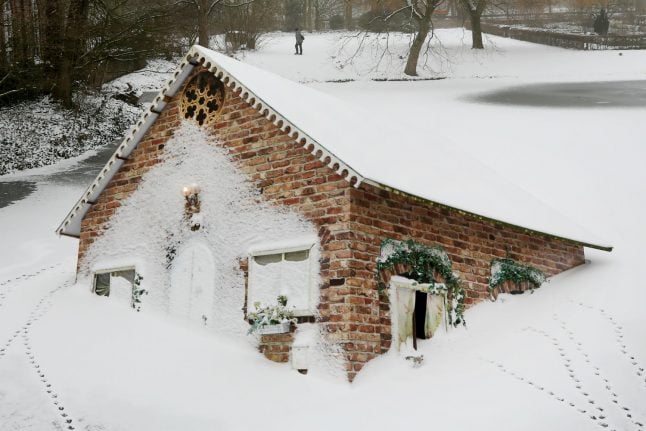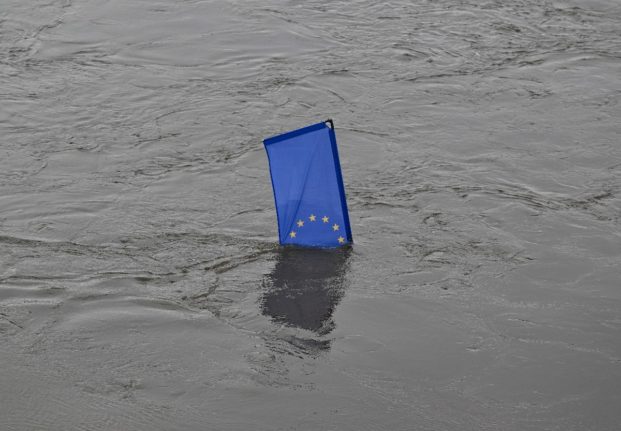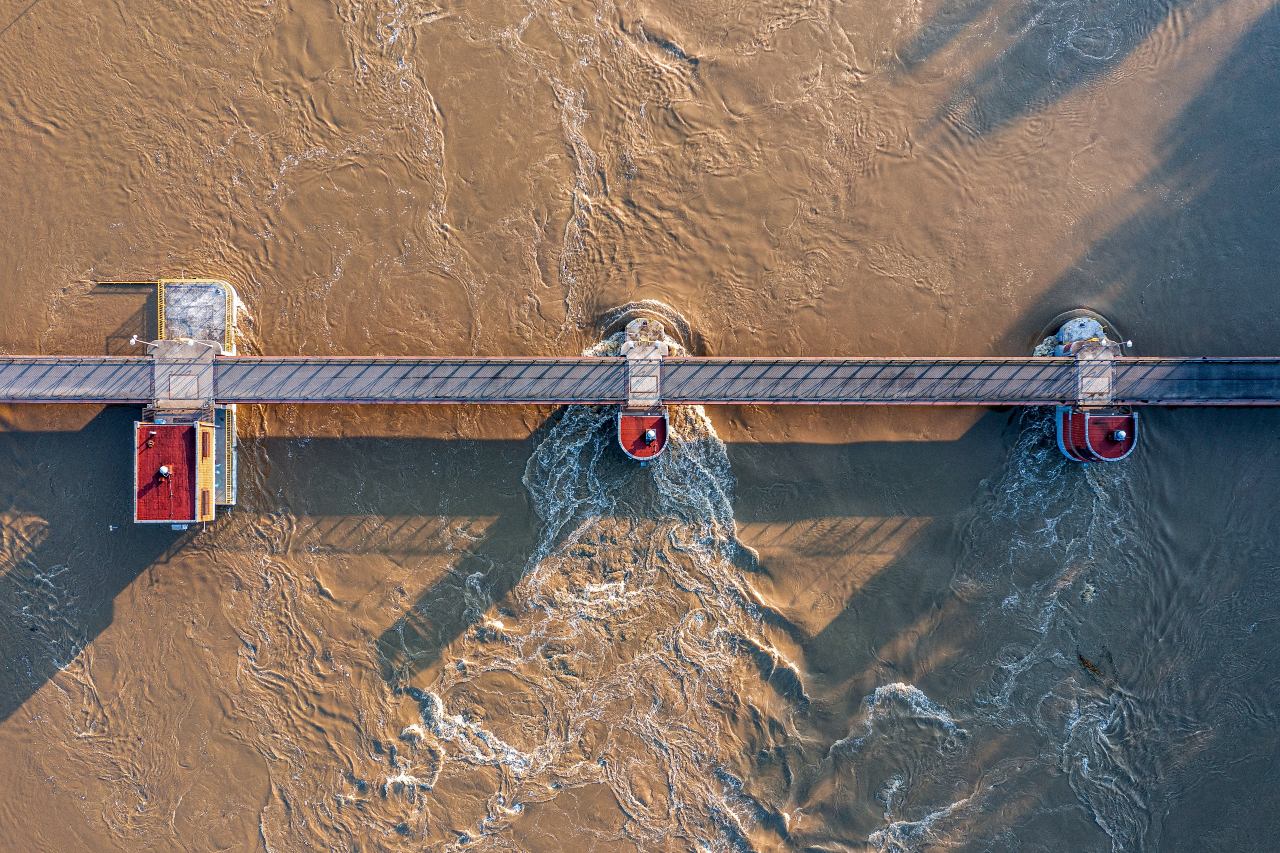However, we bet you’d still be shocked by these pictures from Bedburg-Hau near Kleve in North Rhine-Westphalia.
Yes, your eyes do not deceive you: this house is disappearing fast; it appears to have become almost completely buried in snowfall.
Yet on closer inspection, although this pretty brick building looks like it's been seriously affected by the frosty weather, this is no ordinary home: it's actually an art installation.
It's a piece by the Finnish artist Tea Mäkipää, which is on display at the Museum Schloss Moyland.
On Wednesday museum staff posted on Facebook that the snow had reached them.
The 44-year-old artist has created large installations across Europe. At the Moyland museum, Mäkipää produced a structure to look like it had sunk into the moat of the castle it is located beside.
The piece, named 'Atlantis', lies diagonally in the water, looking like it will sink at any moment, in front of a picturesque backdrop.
The artwork was created as part of a 2017 exhibition featured in the museum called Early Harvest, which focused on the theme of climate change and global warming.
 Here's what Atlantis usually looks like. File photo: DPA
Here's what Atlantis usually looks like. File photo: DPA
While the exhibition has long since finished, Atlantis remains in Bedburg-Hau. And since the moat around the castle is frozen and snow-covered thanks to the frosty temperatures, it looks as if the house may completely sink into the snow.
The museum staff also posted a picture of the exhibit in the evening when there were lights on, and joked that they think someone lives in it.
Cold snap continues
Meanwhile, the wintry weather is continuing across Germany. Although temperatures will increase in some parts, snow and ice are expected to stay.
Forecasters at the German Weather Service (DWD) said there could be more snow in North Rhine-Westphalia, reported RP Online.
However, as the temperature increases slightly, cold rain will fall creating black ice underfoot and on roads.
Drivers and pedestrians have been urged to take care.
There was also snow forecast in parts of Berlin, Brandenburg, Saxony and the south of Germany. An orange level 2 weather warning was in place for much of the country, including western parts, on Friday due to danger of ice. The highest level is 4.
A yellow level one warning was in place for snow in the east and south.

Sheep covered in snow in Bedburg-Hau, North Rhine-Westphalia on Friday. Photo: DPA

Snow fell in Berlin on Friday. Photo: DPA




 Please whitelist us to continue reading.
Please whitelist us to continue reading.
Member comments